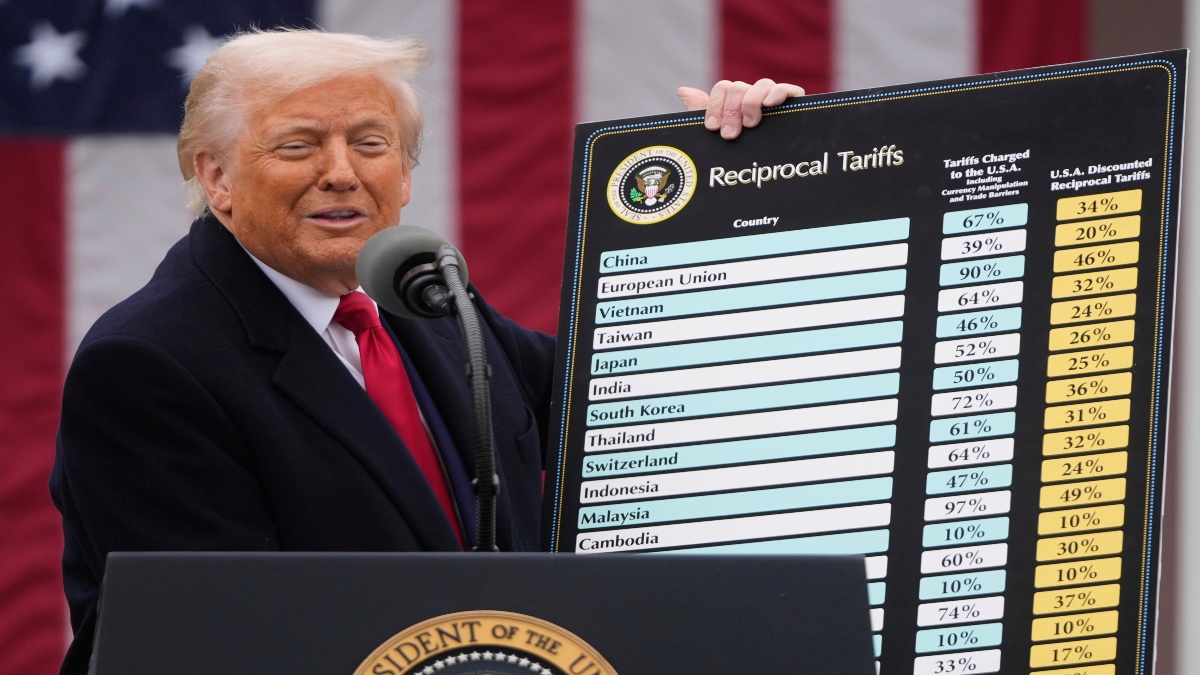The US Supreme Court on Wednesday began hearing arguments in a landmark case challenging the legality of President Donald Trump’s sweeping tariffs — a ruling that could reshape the balance of power between Congress and the White House on trade policy.
According to AFP, the justices questioned the scope of Trump’s authority to impose billions of dollars in duties under emergency powers, as they examined whether his use of the International Emergency Economic Powers Act (IEEPA) to levy “reciprocal” tariffs on countries including China, Mexico, and Canada was lawful.
At stake are billions in customs revenue and a cornerstone of Trump’s trade war strategy.
The conservative-majority court is now tasked with determining whether the president overstepped his authority or acted within his constitutional powers to regulate foreign commerce, added the report.
Opponents argue that the IEEPA does not permit such broad tariff measures and that only Congress can authorise economic actions with major political and financial implications — a point tied to the “major questions doctrine,” which requires explicit legislative approval for significant policy decisions.
Solicitor General John Sauer, representing the Trump administration, pushed back, asserting that the doctrine does not apply in this case. He argued that Congress traditionally grants presidents broad authority to respond to international crises and that tariffs fall under the power to “regulate foreign commerce,” not taxation.
“The power to impose tariffs is a core application of such authorities,” AFP quoted Sauer as saying to the justices.
The outcome, expected in the coming months, could either uphold a key tool of Trump’s economic agenda or strike a major blow to presidential discretion in trade. The case does not involve Trump’s sector-specific tariffs on steel, aluminum, and automobiles, which were enacted separately.
Impact Shorts
More ShortsSince returning to the White House, Trump has raised the average effective US tariff rate to its highest level since the 1930s. A lower court previously ruled in May that he exceeded his legal authority, setting the stage for the current Supreme Court review.
Trump has described the case as “one of the most important in US history,” warning of economic consequences if his tariffs are overturned.
‘Ringside seat’
President Trump had considered attending Wednesday’s Supreme Court hearing in person but ultimately decided against it, saying he did “not want to distract” from the significance of the case.
Treasury Secretary Scott Bessent, however, told Fox News he planned to “have a ringside seat,” and US Trade Representative Jamieson Greer was also present at the court, his office confirmed.
Asked if his presence could be interpreted as an attempt to intimidate the justices, Bessent said: “I am there to emphasise that this is an economic emergency.”
“In recent years, the court has been reluctant to overrule presidential decisions of this magnitude,” ING analysts noted Wednesday.
They added, however, that the case is difficult to predict, saying: “Upholding Trump’s tariffs would shift the balance of power from Congress to the President, further enhancing his executive power.”
The Trump administration maintains that under the International Emergency Economic Powers Act (IEEPA), the president can “regulate” trade by unilaterally setting import tax rates.
Challengers argue that the statute does not mention “tariff” or “tax,” and the US Constitution explicitly grants Congress the authority to impose levies.
Around 40 legal briefs opposing the global tariffs have been filed by businesses, lawmakers, and former US officials, while only a few support the administration’s position.
While Trump’s tariffs have not caused widespread inflation, companies, particularly small businesses, have reported bearing the brunt of higher import costs.
Legal experts note that if the Supreme Court rules the global tariffs illegal, the government could rely on other laws to impose duties up to 15% for 150 days, while exploring options for more permanent tariffs. Countries that have already negotiated deals under Trump may prefer to avoid reopening talks.
With inputs from agencies
)